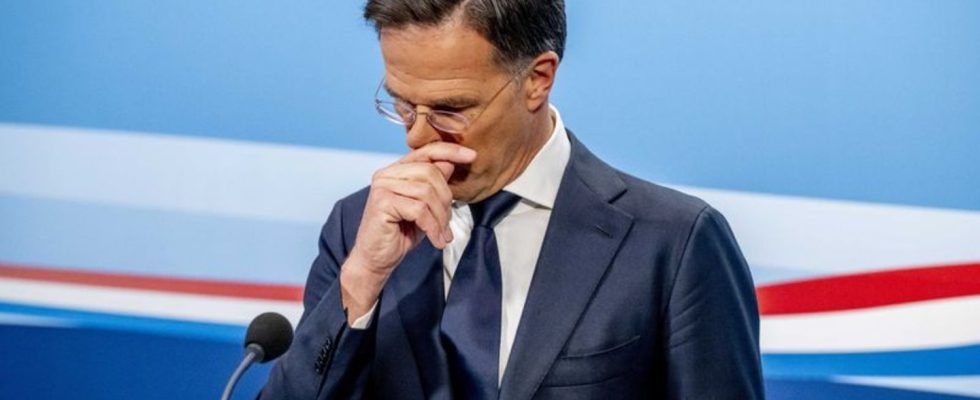migration
After the break of the government, the Netherlands are facing a stalemate
Mark Rutte, Prime Minister of the Netherlands, addresses the press after the weekly Council of Ministers. photo
© Robin Utrecht/ANP/dpa
When the Dutch king interrupts his vacation, the situation is serious: the government has collapsed in the dispute over migration policy. Prime Minister Rutte explains the situation today.
After the Dutch government broke up in the dispute over migration policy, he became prime minister Mark Rutte expected by King Willem-Alexander today. The head of state interrupts his vacation and returns to the Netherlands so that the prime minister can explain the situation to him in Huis ten Bosch Castle near The Hague.
Already on Friday evening Rutte had offered the king in writing the resignation of the cabinet. This was preceded by a crisis meeting at which the heads of the four coalition parties were unable to agree on a compromise on the tightening of asylum practices that the government was aiming for.
New election probably not until November
The differences between the governing parties on the issue are irreconcilable, said Rutte in the evening. He regretted this step, but said it was “a political reality”. Rutte left open whether he would run again in a new election. The fourth government of the right-wing liberals has been in office since the beginning of 2022. Rutte himself has been Prime Minister of the Netherlands for almost 13 years. According to observers, a new election will probably not take place until November.
The crux of the evening crisis meeting in The Hague was a restriction on the family reunification of refugees who are already in the country. Rutte’s right-wing liberal party VVD had called for the restriction. For other parties, the demand went too far.
The Netherlands is struggling with a mainly home-made asylum crisis: In order to save money, the government had cut staff and places in reception centers. The waiting time for the processing of asylum applications became longer and longer. In addition, the general misery on the housing market means that there are hardly any free places in the halls of residence.
Crisis of confidence in Dutch politics
In the midst of a major crisis of confidence in Dutch politics, the asylum dispute is also seen as a pretext for the government’s break-up. The four-party government hardly makes any decisions on many of the important issues that people in the Netherlands are passionate about.
This standstill is unlikely to be resolved before a new election is held – the fear was already voiced on Friday evening. In addition to migration policy, people in the Netherlands are also concerned about the housing shortage, the energy transition and climate policy. One of the major conflicts is the future of agriculture in view of announced environmental regulations.
The fact that the breakup of the coalition will slow down the work of the government that will continue to be in office will already be evident next Monday: Instead of making a working visit to the Groningen region, which is affected by the consequences of natural gas production, as planned, Rutte will be unscheduled to answer questions from parliament about the crisis. Business associations are already insisting that important decisions regarding the labor market and the purchasing power of the population cannot be postponed.

